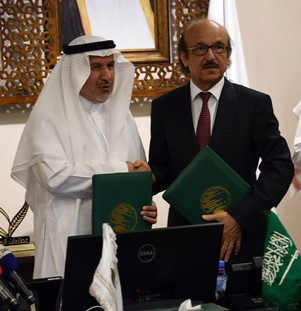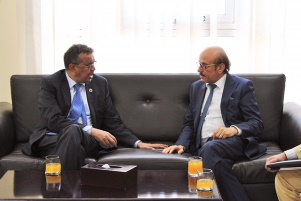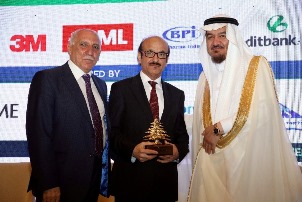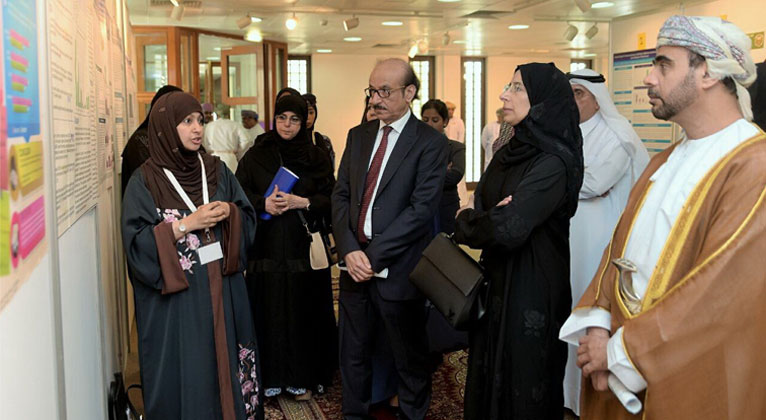 Patient safety represents the reduction of risks for health care-related harm. It demands a broad range of actions, including safe use of medicines, infection control, equipment safety, safe clinical practice and a safe environment for health and medical care at different levels of the health care system
Patient safety represents the reduction of risks for health care-related harm. It demands a broad range of actions, including safe use of medicines, infection control, equipment safety, safe clinical practice and a safe environment for health and medical care at different levels of the health care system
19 September 2017 – Dr Mahmoud Fikri, WHO Regional Director for the Eastern Mediterranean, concluded yesterday a 2-day visit to Oman during which he inaugurated WHO's Third Global Patient Safety challenge ceremony “Medication without Harm” in the Eastern Mediterranean Region.
The focus of the Global Patient Safety Challenge is on strengthening health systems to reduce medication errors with the goal of reducing the level of severe, avoidable harm related to medications by 50% over the next 5 years. It encourages Member States to strengthen common actions to integrate medication safety in national health policies and practices. During the visit, Dr Fikri met with high-level officials in the Government of Oman and participated in different activities.
Dr Mahmoud Fikri, WHO Regional Director for the Eastern Mediterranean, addressed the audience during the launching ceremony of the Third Global Patient Safety challenge “Medication without Harm” in the Eastern Mediterranean Region. "Patient safety represents the reduction of risks for health care-related harm. It demands a broad range of actions, including safe use of medicines, infection control, equipment safety, safe clinical practice and a safe environment for health and medical care at different levels of the health care system," said Dr Fikri.
H.E. Dr Ahmed Bin Mohammed Obaid Al Saidi, the Minister of Health in Oman, inaugurated the launching ceremony along with H.E. Dr Rawya Bint Saoud Al-Bousaidia, Chair of the Board of Sultan Qabous University and Minister of Higher Education. This high-level presence reflects the interest and care of the government of Oman in investing in health-related areas, and its eagerness to provide highly efficient and quality health services in line with WHO’s strategic directions,” the Regional Director noted.
H.E. Dr Ahmed Bin Mohammed Obaid Al Saidi, the Minister of Health in Oman, inaugurated the launching ceremony along with H.E. Dr Rawya Bint Saoud Al-Bousaidia, Chair of the Board of Sultan Qabous University and Minister of Higher EducationDuring an exhibition held on the sidelines of the event, Dr Fikri listened to the experience of Sultan Qaboos University Hospital in promoting safe use, procurement, storage and distribution of medicines, as well as its experience in teaching methods of safe use of medicines.
During the inaugural session of the event, Dr Mahmoud Fikri honoured 4 Omani health facilities participating in the WHO’s initiative for patient-safety hospitals.
Medications are the most common treatment intervention used in health care around the world. When used safely and appropriately, they contribute to significant improvements in the health and well-being of patients. However, despite the best intentions of health care providers and the design of health care systems, unsafe medication practices and medication errors are a leading cause of avoidable harm in health care systems.
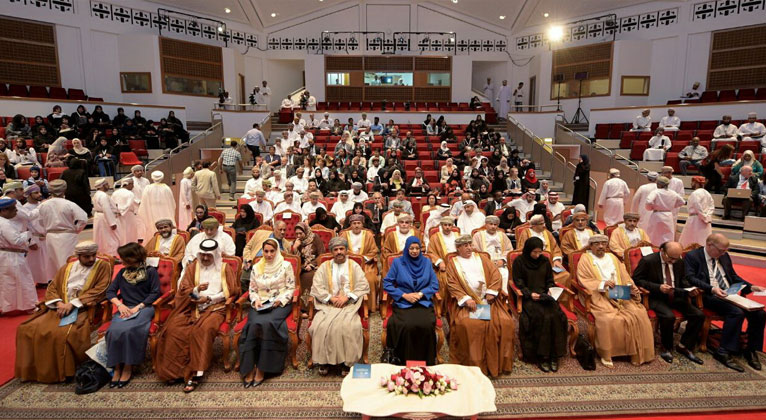 H.E. Dr Ahmed Bin Mohammed Obaid Al Saidi, the Minister of Health in Oman, inaugurated the launching ceremony along with H.E. Dr Rawya Bint Saoud Al-Bousaidia, Chair of the Board of Sultan Qabous University and Minister of Higher Education
H.E. Dr Ahmed Bin Mohammed Obaid Al Saidi, the Minister of Health in Oman, inaugurated the launching ceremony along with H.E. Dr Rawya Bint Saoud Al-Bousaidia, Chair of the Board of Sultan Qabous University and Minister of Higher Education





